More than 1,000 days since the inquiry into the Post Office Horizon IT scandal first opened on Valentine’s Day 2022, it is set to hear its closing arguments next week. The chair, Sir Wyn Williams, and his team will then go away to distil the millions of pages of testimony from more than 5,000 witnesses.
The final report and its recommendations are expected to be published in 2025, with the hope it will help prevent a repeat of the mistakes that led to hundreds of wrongful convictions.
In one of the greatest miscarriages of justice in British history, more than 900 sub-postmasters were convicted of theft, fraud and false accounting between 1999 and 2015, after faulty Horizon software built by Fujitsu made it appear as if money was missing from branches.
This week, police said they had identified dozens of persons of interest in their investigation and had recruited an extra 100 officers to look into the actions of executives, legal teams and civil servants.
Here’s a quick reminder of what we have learned so far from evidence given to the inquiry.
Paula Vennells
The most dramatic evidence came from the former Post Office chief executive Paula Vennells, who repeatedly broke down in tears as she claimed she had been misled by her staff over the safety of the prosecutions of branch operators.
Vennells said she had been “too trusting”. “I have been disappointed, particularly more recently, listening to evidence of the inquiry, where I think I have learned that people knew more than perhaps either they remembered at the time or I knew at the time,” she told the inquiry.
But evidence showed that Vennells had been told of faults in the Horizon system as early as 2011 in an IT audit report. She told the inquiry that she had not understood what she had been reading.
Nick Read
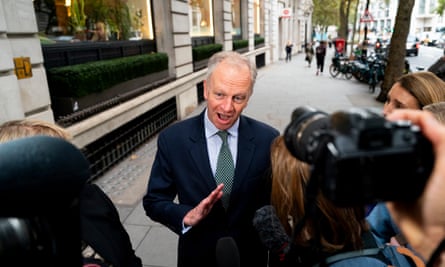
Read joined the Post Office as chief executive in 2019 to replace Paula Vennells, and with a pledge to “right the wrongs of the past”. He will step down in 2025.
In his evidence, he was asked about the claim that he used the phrase “untouchable” to describe a group of Post Office investigators who would never face disciplinary action over the Horizon IT scandal. He was shown a whistleblowing document claiming there were “at least 120 employees” at the Post Office who “to a greater or lesser degree were involved in the wrongful prosecution of SPMs [sub-postmasters]”
“My recollection of this [call] is being very, very clear that no one in the business is untouchable. No one is above the law. I don’t know if I used the word untouchable,” he said.
The inquiry heard that there was still a view within the Post Office that some of the hundreds of post office operators who had been exonerated were probably guilty. Read was pressed on this and said: “I don’t think I could say specifically that is the case but there will be a view that not every quashed conviction will be innocent.”
He was questioned about the whereabouts of the money that sub-postmasters had been forced to pay back to cover supposed shortfalls, but said he was frustrated that it had been hard to find out. The estimated figure for the missing money is £36m.
Tim Parker

Parker, who was chair of the Post Office between 2015 and 2022, was questioned about the robust way in which the company defended itself against a high court case brought by Alan Bates and 554 other former post office workers in 2017. He said it “may have relied too heavily on the advice of lawyers in the way the case was conducted”.
Parker commissioned a report from a barrister into the Post Office’s handling of complaints, which was completed in January 2016, but never shared with the company’s board. Parker said it was because he had received legal advice not to do so, but accepted that, had it been discussed at board level, it could have led to a “different approach” being taken in the lawsuit.
Angela van den Bogerd
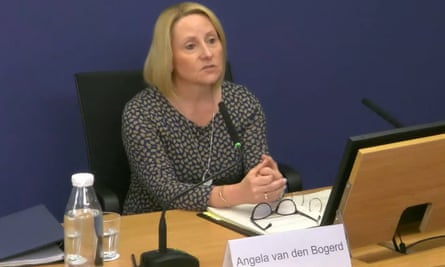
Angela van den Bogerd, who was the Post Office’s business improvement director, told the inquiry she “did not knowingly do anything wrong”. She was asked about testimony she gave to the high court in 2018, in which she insisted she had been aware that the Horizon system could be accessed remotely – suggesting convictions of sub-postmasters were not safe – only “a year or so” beforehand.
The inquiry was shown emails sent to Van den Bogerd in 2010, 2011 and 2014 that referred to the fact that Horizon could be accessed remotely and branch accounts tampered with. Van den Bogerd said that she didn’t think she was making a false statement at the time. “The message on remote access kept changing,” she said.
Paul Patterson
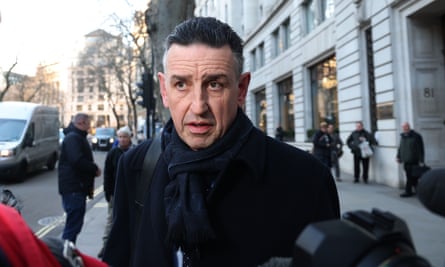
The European boss of Fujitsu told the inquiry that it was “shameful and appalling” that courts hearing cases against post office operators were not told of 29 bugs identified as early as 1999 in the system.
The inquiry heard that witness statements from Fujitsu staff due to be heard in court were edited by the Post Office to support the argument that the system was working well. Paul Patterson agreed that both organisations had failed those accused.
Ed Davey
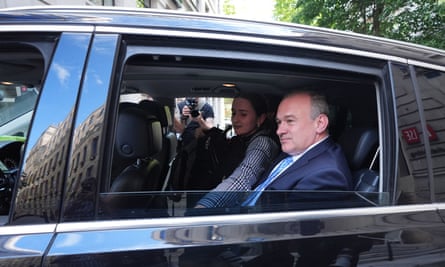
The Liberal Democrat leader, Ed Davey, who served as postal affairs minister between 2010 and 2012, told the inquiry that the Post Office had lied to him about the facts of the scandal, naming Vennells and the former managing director David Smith as some of the “people passing information which was untrue”.
He apologised to Alan Bates for his “terse” response to his request for a meeting when he was first appointed to the role – “I do not believe that a meeting would serve any useful purpose,” he said at the time. Davey said he relied on officials to decide whom it was important to meet. They eventually met in October 2010.
Kemi Badenoch
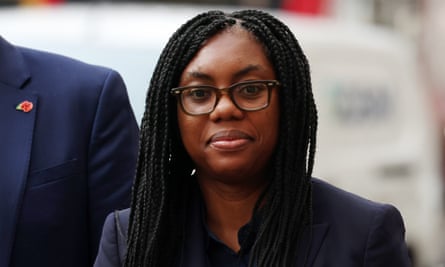
When the Conservative leader, Kemi Badenoch – who served as business secretary from February 2023 until the general election – gave evidence, she blamed government bureaucracy for getting in the way of delivering swift compensation to sub-postmasters. “[Officials] are worried about – if things go wrong, they’ll be on the hook for that. So they carry out lots of checks and balances well beyond what I think is required in order to deliver the right outcome,” she said.
She admitted that the ITV drama into the scandal, which aired in January, “changed the priority of the [Horizon] issue”. She said the issue had gone from being “behind the NHS and security and so on, to something we needed to solve now. It raised the prioritisation.” She described this fact as “extremely disappointing”.
Alan Bates
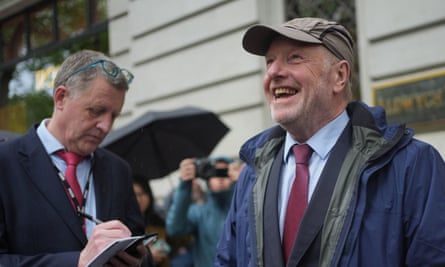
In his evidence to the inquiry, Alan Bates, who founded the Justice for Sub-postmasters Alliance (JFSA) in 2009 – and who was made famous by the ITV drama – was scathing. He accused ministers of being vindictive over his own compensation claim. “I have no doubt that there’s a bit of vindictiveness coming in from the [business] department and the Post Office,” he said. “The reason I say that is quite simple. They don’t think there is any worth to any of the work I have done over the years.”
“I didn’t set out to spend 20 years doing this,” Bates said. “Once I’d started my individual little campaign, we found others along the way, and eventually we all joined up. It has required dedication, but secondly, it is a cause.
“I mean, as you got to meet people, and realise it wasn’t just yourself. And you saw the harm, the injustice that had been descended upon them, it was something that you felt you had to deal with.”

.png) 4 weeks ago
7
4 weeks ago
7













































